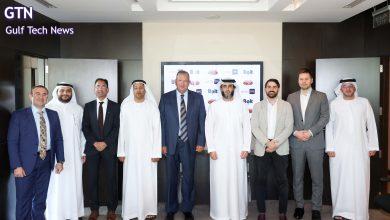Saudi Arabia’s economic landscape shifts with strong demand in tourism fuelling real estate in Q3 2024: JLL
- Saudi Arabia’s hospitality sector records a 656% increase in international leisure arrivals, underscoring the Kingdom’s growing global appeal.
- Residential sales prices for apartments rise by 12% in Riyadh and 6% in Jeddah, reflecting shifting buyer preferences.
- Grade A office rents surge by 20.8% year-on-year in Riyadh, driven by strong demand and near-zero vacancy rates.
- Retail sector evolves with experiential offerings and integrated shopping platforms to meet consumer demands.
The ongoing rapid urban and infrastructure development in the Kingdom is creating new hotspots for development driven by a surge in tourism and ongoing economic diversification initiatives, according to JLL’s latest KSA Market Dynamics Report.
Long-term prospects remain positive, supported by Vision 2030’s economic diversification efforts focused on continued development and government initiatives like the Sakani Program and the Real Estate Development Fund, which is enhancing accessibility to homeownership.
Saudi Arabia’s hospitality sector continued its strong growth trajectory, driven by the Kingdom’s tourism diversification efforts. International leisure and entertainment arrivals surged by an astounding 656% in the first seven months of 2024, where the total number of international arrivals reached 17.5 million visitors – a 10% year-on-year increase.
This growth highlights the success of initiatives such as streamlined tourist visas, expanded entertainment offerings, and high-profile sports events, which have bolstered the Kingdom’s appeal as a global leisure hub and demonstrated the effectiveness of Vision 2030’s tourism strategy.
Riyadh emerged as a standout performer with a 19% increase in Average Daily Rates (ADR), driving a 17.1% rise in Revenue per Available Room (RevPAR), despite a slight occupancy decline. Jeddah experienced an occupancy increase of 1.4 percentage points (pp); however, it saw a 10.3% drop in RevPAR due to a 12.1% ADR decline.
Hotel supply remained stable, with 22,379 keys in Riyadh and 16,538 keys in Jeddah. Expansion plans include 2,200 new keys in Riyadh and 550 keys in Jeddah by year-end. Meanwhile, Makkah and Madina showed mixed trends, with RevPAR declining by 2.9% in Makkah and increasing by 1.6% in Madina.
Saud Alsulaimani, Country Head, KSA at JLL, said: “The hospitality sector is poised for further growth, driven by a robust events calendar, including Riyadh Season, Al Ula Season, and the Red Sea Film Festival, which is underway. These events, coupled with a steady influx from religious tourism, are expected to boost demand, enhance cultural appeal, and extend average occupancy across key markets.”
Riyadh and Jeddah’s residential markets showcased strong growth in the third quarter of 2024, driven by robust demand and evolving buyer preferences. Riyadh added 4,000 units, reaching 1.46 million units, while Jeddah delivered 8,000 units, bringing its stock to 899,000. Further completions of 11,000 units across both cities are expected by year-end. Sales prices increased significantly, rising 12% in Riyadh and 6% in Jeddah, with rental rates following suit at 10% and 8%, respectively.
A shift towards apartment living is becoming evident, fuelled by affordability for younger buyers and first-time homeowners. Apartment sales led the market with price spikes of 17% in Riyadh and 6% in Jeddah, where apartments accounted for 83% of transactions in Jeddah between October 2023 and 2024, according to the Real Estate General Authority (REGA).
Riyadh’s office sector continued its upward trajectory, with Grade A rents skyrocketing by 20.8% year-on-year to SAR 2,131 per sq. m. as vacancy rates plunged to a historic low of 1.6%. This surge is primarily fuelled by government entities and a thriving private sector, particularly in pharmaceuticals and IT.
Occupiers are increasingly gravitating towards Northern Riyadh, offering superior accessibility and high-quality developments with ample parking and efficient workspaces to combat rising traffic volumes.
Meanwhile, Jeddah’s focus on high-quality properties saw Grade A rents rise by 11.6% to SAR 1,338 per sq. m., with a low vacancy rate of 3.7%. The focus on high-quality office spaces continues to drive demand, prompting developers and landlords to adapt their offerings to meet evolving occupier preferences.
Demand across both cities is expected to remain strong, with limited supply and evolving tenant preferences sustaining rental growth. Trends, such as the entry of new serviced office operators and smaller units for sale, are reshaping the market, requiring developers to adapt offerings to meet expectations for amenities and efficiency.
Based on insights gathered from industry sources and experts, JLL’s Q3 2024 KSA report reveals Riyadh and Jeddah’s retail markets showed contrasting performances. Riyadh’s organised retail stock grew to 3.48 million sq. m. with the addition of a small convenience centre, maintaining stability with a 4.6% vacancy rate and flat rents for super regional and regional malls.
Meanwhile, Jeddah’s stock held at 2.16 million sq. m., but market dynamics were mixed. Super regional malls saw rents rise by 4.2% year-on-year, while regional malls experienced a 4.5% decline, alongside a high vacancy rate of 20.2%.
Retailers are increasingly adapting to changing consumer expectations by prioritising immersive shopping experiences, integrating innovative designs, interactive displays, and events. The rapid growth of omni-channel retailing has also spurred significant investment in systems that seamlessly connect online platforms, physical stores, and mobile apps.
Looking ahead, the sector is set for transformation as 183,000 sq. m. of new retail space is expected in Riyadh and Jeddah by year-end. While this may pressure existing rents, experiential and high-performing assets are poised to thrive, signalling a shift towards competitive differentiation through customer engagement and integrated retail experiences.
“This is an exhilarating time for Saudi Arabia as we witness unprecedented growth across multiple sectors. The combination of soaring tourism figures, rising hospitality revenues, and strong demand for residential properties is creating a dynamic environment that presents immense opportunities for investors and businesses alike.
The Kingdom’s commitment to diversifying its economy is evident, and we are excited to see how these developments will shape our collective future,” added Alsulaimani.




